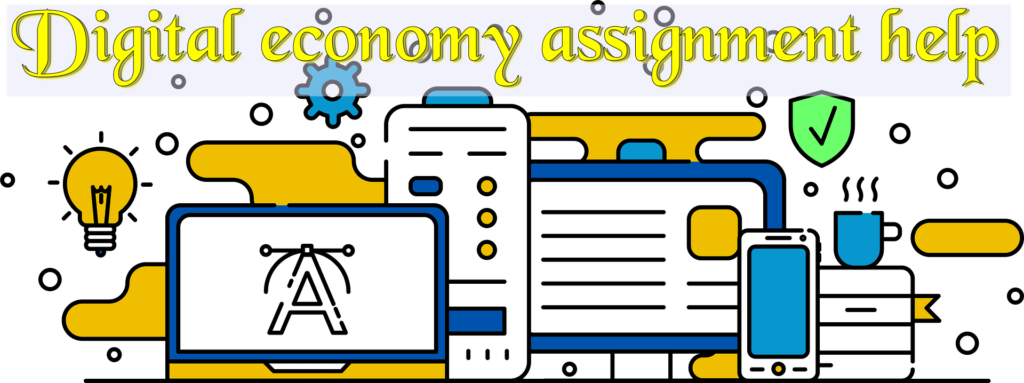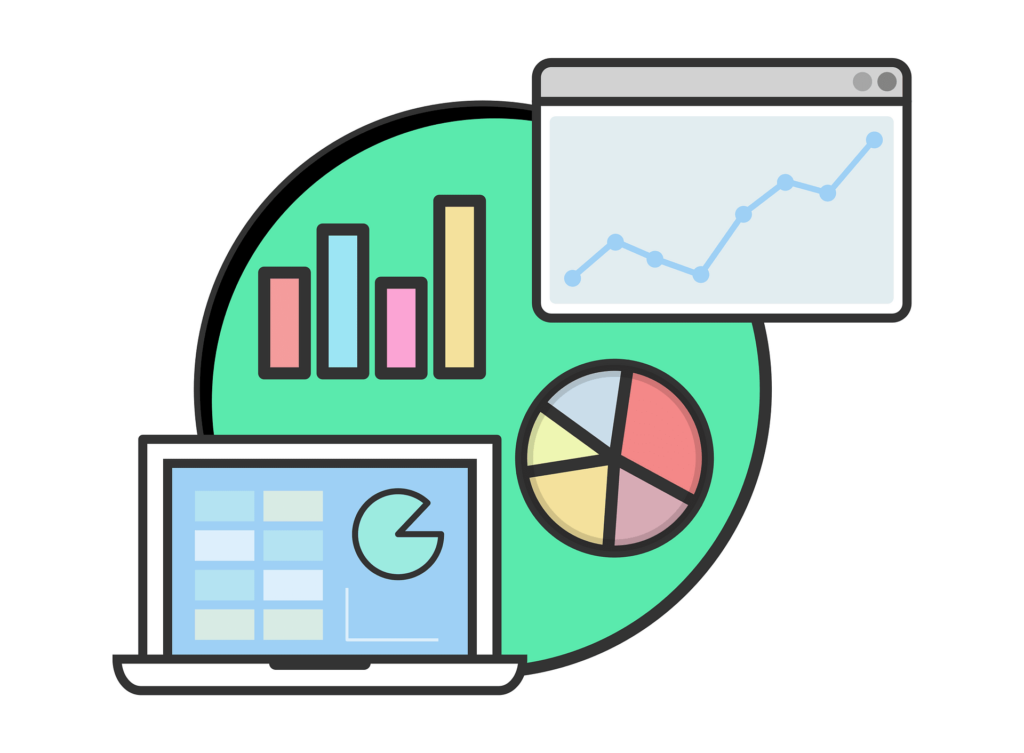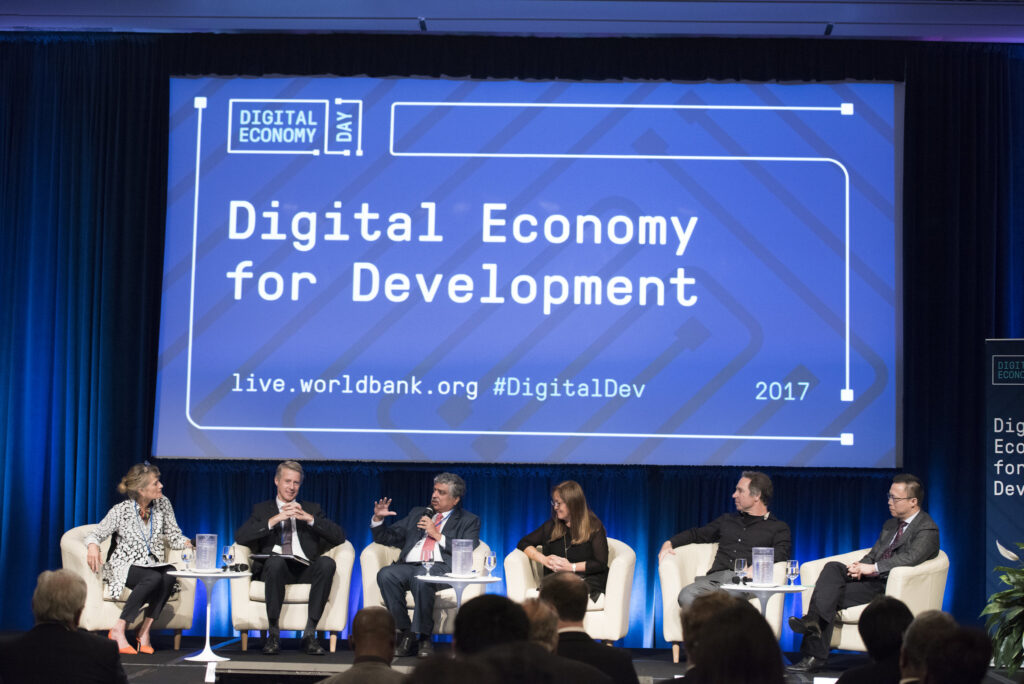
What does digital economy mean?
The digital economy is the economic activity resulting from billions of daily online connections among individuals, businesses, devices, data, and processes. It involves the exchange of goods and services, the creation and distribution of information and intellectual property, and the deployment and use of technology and digital infrastructure. The digital economy has been growing rapidly in recent years, driven by advances in technology and widespread access to the internet.
However, the growth of the digital economy also raises concerns about privacy, security, and inequality. As more and more sensitive data is collected, stored, and processed online, it becomes increasingly important to protect individuals’ personal information and ensure that data is used ethically and responsibly. Additionally, the digital economy can exacerbate existing inequalities, as access to technology and digital skills are not evenly distributed across society. It is important to address these challenges and promote digital literacy, data protection, and responsible innovation to ensure that the digital economy continues to grow in a sustainable and inclusive manner.

History of digital economy
The history of the digital economy dates back to the 1960s and 1970s when the first computer networks were developed and commercialized. The first computer networks allowed users to send electronic messages and share data and resources, laying the foundation for today’s digital economy.
In the 1980s, the rise of personal computers and the growth of the internet created new opportunities for individuals and businesses to engage in online commerce and communication. The first e-commerce transactions took place in the 1980s, and early digital marketplaces like CompuServe and Prodigy were established. These early platforms were primarily used for the exchange of goods and services, but they also paved the way for more advanced e-commerce platforms and digital marketplaces that would emerge in the years to come.
The 1990s saw the rapid growth of the internet and the emergence of the World Wide Web, which revolutionized the way people and businesses interact online. This decade also saw the development of new digital technologies, such as e-mail, file sharing, and video conferencing, which further enhanced the ability of individuals and businesses to connect and collaborate online.
In the early 2000s, the rise of mobile technology and the widespread adoption of smartphones and tablets created new opportunities for the digital economy. Mobile commerce and mobile banking emerged, and new digital platforms, such as Apple’s App Store and Google Play, made it possible for developers to create and distribute apps to millions of users worldwide.

Digital economy examples
The digital economy encompasses a wide range of industries and activities that involve the exchange of goods, services, and information online. The following are some examples of digital economy activities:
- E-commerce: E-commerce refers to the buying and selling of goods and services over the internet. Online marketplaces, such as Amazon and Alibaba, are among the largest e-commerce companies in the world, offering a vast selection of products and services to customers around the globe. E-commerce also includes online retail sites, such as Walmart and Target, as well as small and medium-sized businesses that sell their products through their own websites or marketplaces.
- Digital payments: Digital payments refer to the electronic transfer of funds between individuals and businesses. This includes online transactions through credit cards, PayPal, and other digital payment systems. Digital payments have become increasingly popular as they offer a convenient, fast, and secure way to transfer money, and they are helping to drive the growth of the digital economy.
- Mobile commerce: Mobile commerce, or m-commerce, refers to business conducted through mobile devices, such as smartphones and tablets. Mobile commerce has been growing rapidly in recent years, driven by the widespread adoption of smartphones and the increasing availability of mobile-friendly e-commerce platforms and apps. M-commerce enables consumers to shop and make purchases from anywhere, at any time, using their mobile devices.
- Cloud computing: Cloud computing refers to the delivery of computing resources, such as storage, processing power, and software, over the internet. Cloud computing enables businesses and individuals to access and use computing resources on demand without investing in and maintaining their own hardware and software infrastructure. This has dramatically reduced the barriers to entry for businesses of all sizes and has been a key driver of the growth of the digital economy.
- Big data analytics: Big data analytics refers to collecting, storing, and analyzing large and complex data sets to gain insights and make informed decisions. Big data analytics has become increasingly important in recent years as businesses and organizations generate and collect vast amounts of data from a wide range of sources. Big data analytics helps organizations to understand their customers better, improve their products and services, and gain a competitive advantage in their markets.
- Social media: Social media refers to online platforms and services that enable individuals and organizations to connect, share, and collaborate with others. Examples of social media include Facebook, Twitter, LinkedIn, and Instagram. Social media has become an important part of the digital economy, enabling individuals and organizations to connect with their customers, promote their products and services, and build their brands.
- Online gaming: Online gaming refers to games played over the internet, either against other players or against computer-controlled opponents. Online gaming has become a major part of the digital economy, with millions of people around the world playing games online. Online gaming generates significant revenue through the sale of virtual goods, subscriptions, and advertising.
- Internet of Things (IoT): The Internet of Things (IoT) refers to the interconnectivity of physical devices, such as sensors and appliances, that can collect and transmit data over the internet. IoT enables the creation of smart devices and systems that can communicate with each other and with people, creating new opportunities for innovation and business growth. For example, smart homes, connected vehicles, and wearable devices are all examples of the IoT in action.
Need an ‘online assignment helper?’ Cheap assignment helper has you covered. Contact us to get linked to cheap and best assignment experts.
Importance of digital economy
The digital economy has become increasingly important in transforming the way we live, work, and interact. Some of the key benefits and importance of the digital economy include the following:
- Increased efficiency and productivity: Digital technologies have enabled businesses to automate many processes and tasks, reducing the time and effort required to complete them. This has increased efficiency and productivity in many industries.
- Improved access to goods and services: Digital technologies have made it possible for people to access a wider range of goods and services, regardless of their location. This has made it easier for consumers to find the products they need and for businesses to reach new customers.
- Increased competition: The digital economy has created new opportunities for businesses to enter markets and compete with established companies. This has increased competition and driven innovation, leading to better products and services for consumers.
- Increased connectivity: Digital technologies have enabled people to connect with each other more easily and effectively, regardless of their location. This has created new collaboration opportunities and facilitated the development of global networks and communities.
- Improved access to information: Digital technologies have made it possible for people to access vast amounts of information and knowledge, regardless of their location. This has made it easier for people to learn new skills and acquire knowledge and has opened up new opportunities for research and innovation.
- Improved access to financial services: Digital technologies have made it possible for people to access financial services more easily, regardless of their location. This has made it easier for people to manage their finances, save money, and invest in new opportunities.
- Increased economic growth: The digital economy has created new industries and jobs and has driven economic growth in many countries. It has also enabled businesses to reach new markets and expand their operations, leading to increased prosperity and economic development.

Digital economy assignment
At a university level, students might encounter digital economy assignments that involve a variety of topics and subject areas, including economics, business, technology, and marketing. The specific assignment will depend on the course and the professor’s requirements, but it will likely involve conducting research, analyzing data, and presenting a well-supported argument.
Here are a few examples of digital economy assignments that students might encounter:
- Research paper: A research paper might involve analyzing a specific aspect of the digital economy, such as the impact of e-commerce on traditional retail businesses or the effects of digital technologies on employment and the labor market.
- Case study analysis: A case study analysis might involve analyzing the strategies and success of a specific company in the digital economy, such as Amazon, Uber, or Airbnb.
- Business plan: A business plan assignment might involve developing a plan for a new digital business, including market research, financial projections, and a marketing strategy.
- Market analysis: A market analysis assignment might involve analyzing a specific market or industry within the digital economy, such as the growth of online advertising or the impact of mobile technologies on the travel industry.
- Comparative analysis: A comparative analysis assignment might involve comparing the digital economies of two or more countries, looking at factors such as regulations, infrastructure, and adoption of digital technologies.
Why rely on cheap assignment helper for Digital economy assignment help
Whenever you are tasked with a digital economy assignment and you come online seeking help, all you will be looking for is a website that understands your assignment and will deliver on time. As the best essay writing service, you can trust us with your digital economy assignment. Here is why we are the best website to go to for Digital economy assignment help on Reddit:

Friendly support
Our support team is always here for our beloved clients. We never take any inquiry for granted, so if you have any questions about our assignment help service or your assignment, chat with us. Our agents will listen to you and provide appropriate advice.
On-time delivery
We are mindful of our client’s performance in school. We understand how dangerous missing an assignment’s deadline can be; therefore, we prioritize delivering orders within the stipulated deadline.
Top quality essays
Our cheap assignment help does not comprise when it comes to delivering a quality essay. Our writers are well informed and do follow order instructions to the letter.
Plagiarism free papers
Plagiarism is an academic offense that can lead to the suspension of a student. Our cheap essay writers write all essays from scratch and back them with credible references. Whenever a client wants a plagiarism report, we avail it ASAP.
Affordable services
Unlike other essay writing websites that overcharge clients, we only ask for what is enough pay for the writer. Our writers love their work and prioritize client satisfaction over everything. As one of the best essay writing services online, we have cut our prices and made them affordable to every student in need of digital economy assignment help.